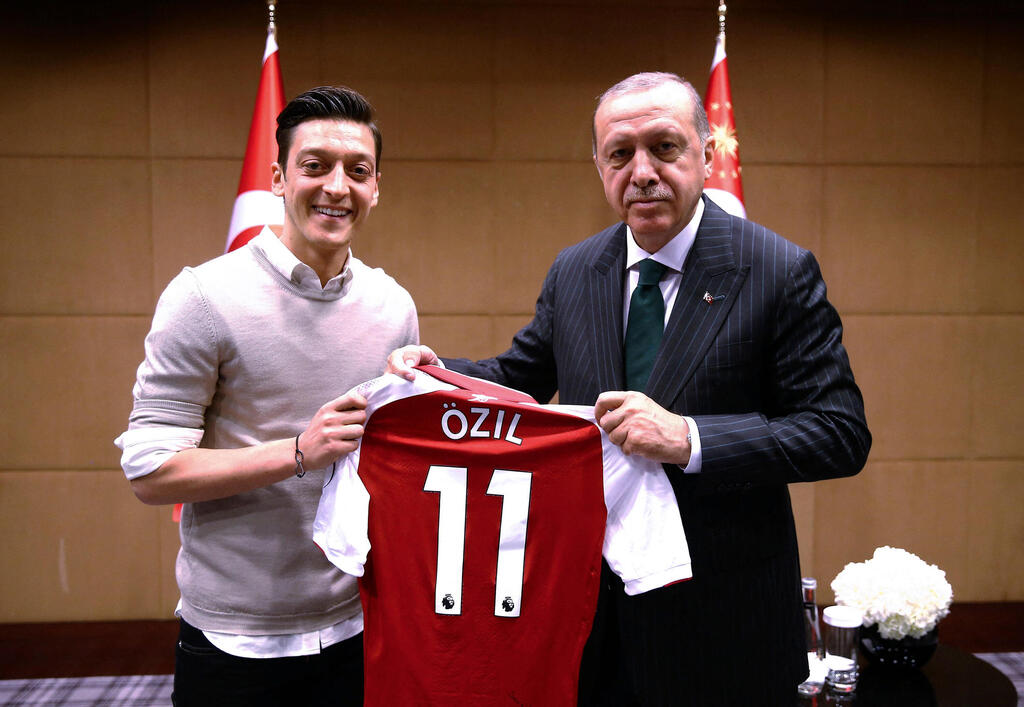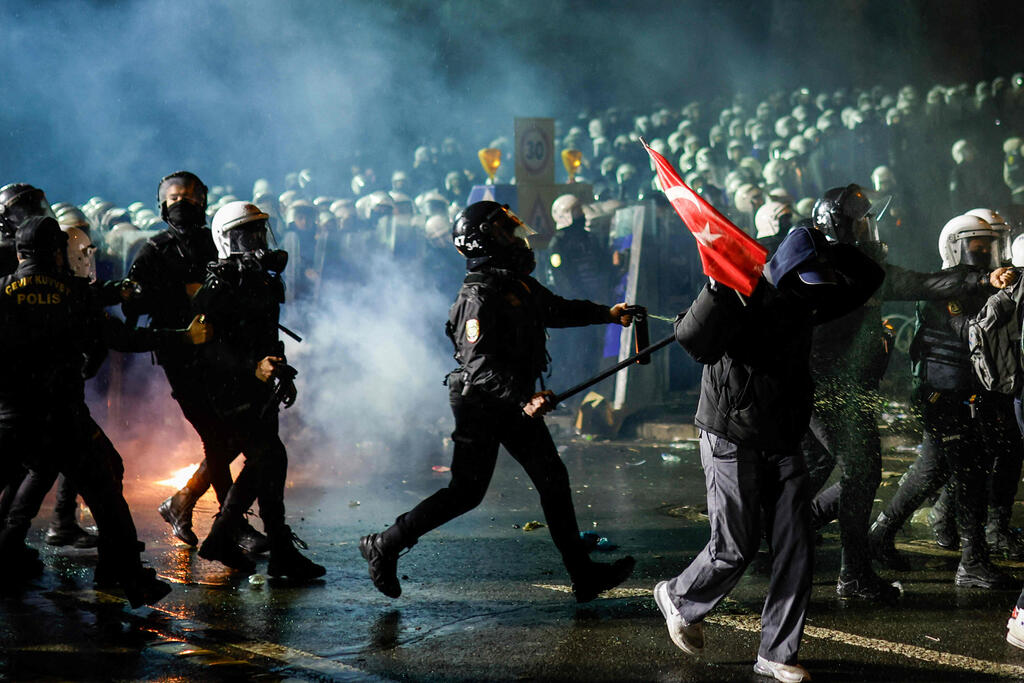Former soccer star Mesut Özil is once again under fire, following his support for Turkish President Recep Tayyip Erdoğan during a wave of mass protests sparked by the arrest of Istanbul Mayor Ekrem İmamoğlu, a key opposition figure widely seen as Erdoğan’s most significant political challenger.
Despite a long list of controversies surrounding Özil’s post-soccer career, his latest move stunned even those with low expectations. As hundreds of thousands of Turks took to the streets in protest, popular British rock band Muse postponed an upcoming concert in Turkey and actress Aybüke Pusat was reportedly fired from a beloved television series after expressing support for a boycott of companies aligned with the government.
At a moment when public figures were taking clear stands against authoritarianism, many had hoped Özil—who grew up in a working-class Turkish-German household—might lend his voice to the opposition. Instead, he once again aligned himself with Erdoğan, reigniting criticism of his close ties to the president and disappointing fans who had once viewed him as a potential voice for change.
Kreuzberg meets Istanbul
It’s a heartache to see Mesut Özil today—just as it was once a joy to watch him play. His elegant movement into open space, his assists, his vision, his divine technique. A career at Real Madrid, then Arsenal. One of the greatest playmakers of his generation.
But all of that, the entire on-field symphony, was merely a soundtrack to the deeper symbolism Özil carried. He broke boundaries. He embodied everything many hoped to see in immigration, in integration, in the beautiful fusion of East and West, of wild child and discipline. A grandson of Turkish immigrants—the so-called “guest workers” who stayed in Germany and made it their home—Özil grew up in the German soccer system, chose to represent the country that raised him, and made the world fall in love with a new kind of German soccer: sexy, immigrant, Berlin-style. Kreuzberg meets Istanbul.
No one came close to being a role model like Özil—especially not for young Turks, second- and third-generation Germans. He represented hope, dignity, self-belief. Anything was possible.
And the courage (and opportunism) he showed in choosing to play for the country that embraced him over the one where his parents were born. In recent weeks, however, as Özil has publicly backed President Erdoğan with full and unquestioning support, many Turkish fans reminded him where his national loyalty lay when they had hoped he would wear their team’s colors.
If only his imagination, technique, vision and ball control could be copied into a life beyond the pitch. “Özil is unique. There is no copy of him, not even a bad copy,” said José Mourinho, who coached him at Real Madrid.
Four years after Germany’s World Cup victory in Brazil in 2014, and just before the tournament in Russia, Özil and fellow player İlkay Gündoğan were photographed with Erdoğan during his re-election campaign. The image was a blow to the German public. Erdoğan represents values diametrically opposed to Germany’s—free speech, LGBTQ and women’s rights, press freedom and judicial independence. For many Germans—who see soccer as one of the few realms where national pride is allowed to be expressed—this was nothing short of betrayal. The boy they raised turned his back on them.
Özil had once stood as the proof that integration could succeed. Erdoğan, by contrast, warned Turks in Germany to remain Turks.
A bitter exit from the national team
From here, things only got uglier. Germany was eliminated from the World Cup in Russia at the end of the group stage. Özil was accused of lacking patriotism. He, in turn, accused the soccer association and his teammates of racism, and of failing to stand by him when he was subjected to racist abuse. He retired from the national team.
3 View gallery


Protesters in Turkey hold a picture of Istanbul Mayor Ekrem İmamoğlu
(Photo: KEMAL ASLAN/AFP)
Testimonies from within the squad revealed how little loyalty his teammates showed him, exposing the hypocrisy behind Germany’s national team campaigns promoting inclusion, equality and diversity. While many of them protested against Qatar's hosting of the tournament, few stood by their teammate—the son of immigrants.
All this unfolded against the backdrop of Germany’s refugee and immigration crisis, growing tensions between Muslim and Christian communities, and the rise of far-right parties hostile to migrants and Muslims. Özil was supposed to be the bridge, the guard rail. Instead?
Get the Ynetnews app on your smartphone: Google Play: https://bit.ly/4eJ37pE | Apple App Store: https://bit.ly/3ZL7iNv
Özil invited Erdoğan to be the best man at his wedding, threw himself entirely behind the Turkish leader, shared maps of Palestine that questioned Israel’s right to exist and bears a tattoo of the Grey Wolves—a violent, far-right nationalist group. In recent weeks, he has positioned himself against the aspirations of his fellow Turks for freedom and democracy.
Once, Mesut Özil was the poster boy of great soccer, the symbol of hope for a connection between East and West. Today, he drifts between palaces and presidential chambers, embodying fracture, division and a world split apart. No matter how many times it happens, it still breaks your heart.



